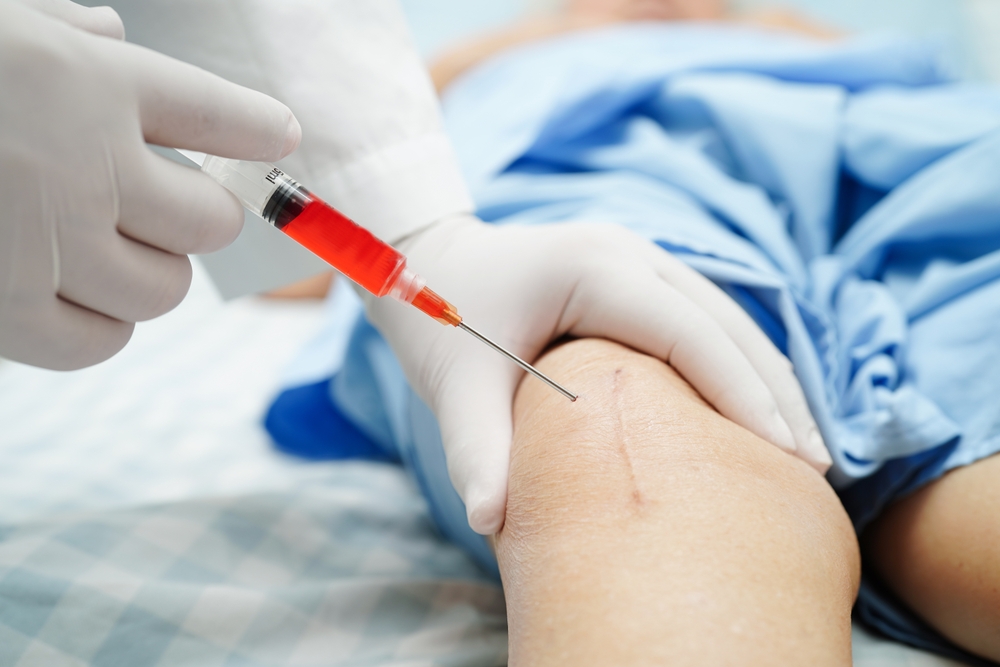
The meniscus is a crescent-shaped piece of cartilage that acts as a cushion between the bones of the knee joint. A meniscal tear is one of the more common injuries, particularly among athletes. Even though there are more than one million knee arthroscopy procedures performed in just the United States alone, there continue to be high failure rates.
One study estimates that between 20% to 24% of surgeries performed fail. Although current surgical techniques are effective in repairing or removing the damaged tissue, there is still room for improvement in terms of both efficacy and complication rates. Researchers are exploring new techniques and therapies that may help to improve outcomes for patients having meniscal surgery.
Stem cells could be helpful in improving outcomes of partial meniscectomy. Mesenchymal stem cells can differentiate into various types of connective tissue and have anti-inflammatory and immunomodulatory effects. These properties make them potentially useful in the treatment of meniscal surgery.
Preclinical studies have showcased that stem cells are able to differentiate into meniscal cells. These studies found that stem cells were able to help regenerate meniscal tissue, which can help improve patient outcomes. A study, Adult Human Mesenchymal Stem Cells Delivered via Intra-Articular Injection to the Knee Following Partial Medial Meniscectom, evaluated the effects of stem cell therapy on patients who had undergone partial meniscal surgery.
Results of the Study
The researchers understood that stem cell therapy could be an effective treatment for patients who have undergone partial meniscal surgery. This clinical trial is designed to examine the effects of a single intra-articular injection of stem cells. The objectives include evaluating the safety, the ability for regeneration following surgery, and its effectiveness in treating osteoarthritis symptoms.
Sixty patients between the ages of 18 and 60 were chosen for the study. The researchers broke the patients into three groups. The first group received injections of 50 million stem cells (group A), the second group received injections of 150 million stem cells (group B), and the third group was the control group (group C). The stem cells were derived from bone marrow of donors aged 18 to 30.
Patients received the treatment between seven and ten days after undergoing partial meniscal surgery. Eight patients discontinued the study. The researchers performed follow-up assessments and MRIs before the injection, six weeks, six months, one year, and two years after the injection. Patients also self-reported their progress with the visual analog scale (VAS) and Lysholm knee scale self-assessment.
The results of the study were promising. The researchers found that the treatment did not cause any serious adverse events. Patients experienced adverse events such as arthralgia, joint swelling, joint stiffness, injection-site joint pain, joint swelling, headache, and leg swelling. The study found that there were no changes in vital signs or immunological parameters, which shows that the immune system did not have a negative reaction to the treatment.
The researchers strived for a goal of an increase of at least 15% in meniscal volume. This volume was determined through MRI evaluation. The study found that there were positive results in terms of meniscal volume. At the six-month evaluation, the researchers found that one patient in group A and one patient in group B both had increased meniscus volume of at least 15%.
After one year, four patients in group A saw an increase in meniscus volume of at least 15%. After two years, three patients met this criterion. No patients in the control group ever saw an increase in meniscus volume of at least 15%. There were other improvements that the researchers reported.
At six months, 82% of all patients did not show any additional signs of degenerative damage. Both stem cell groups saw improvements in knee pain. Group A patients saw an average VAS score improvement of 18.8 mm after just six weeks, and that score increased to 27.3 mm after two years. Group B saw similar gains, with their average VAS scores increasing 14.6 mm at six weeks and 24.1 mm at two years.
These results showcase that stem cells can improve the clinical outcomes of patients undergoing partial meniscal surgery. The study also found that this treatment is safe for patients. This study was one of the first clinical trials to investigate the use of stem cells for intra-articular injection. The researchers found that a higher dose of stem cells does not necessarily correlate to increased efficacy. This study highlights the potential of stem cell therapy. More research is needed to ensure that stem cell therapy can improve patient outcomes.

